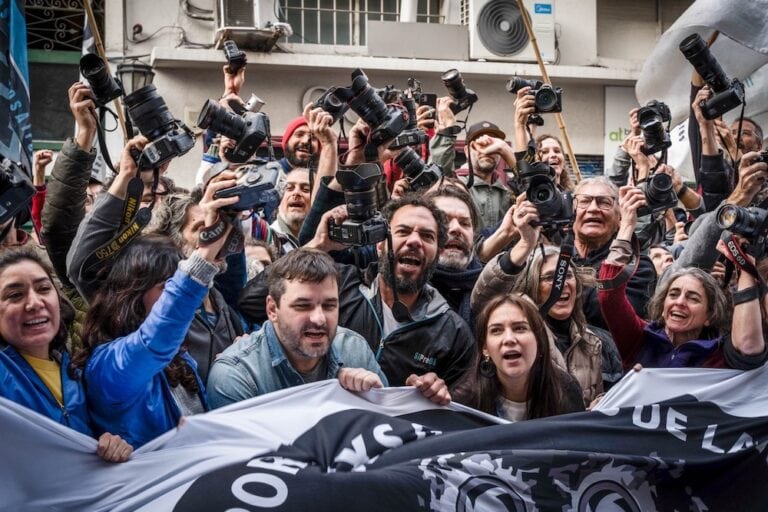The approval constitutes a historical landmark in the Western Hemisphere's press freedom jurisprudence, says WPFC.
(WPFC/IFEX) – In a letter to the president of the Senate and the speaker of the Chamber of Deputies, WPFC welcomes the approval of a bill decriminalizing defamation:
Nov. 20, 2009
Their Excellencies,
Julio César Cleto Cobos, President of the Senate
Dr. Eduardo Alfredo Fellner, Speaker of the Chamber of Deputies
The Nation’s Congress
Buenos Aires, Argentina
Your Excellencies:
The World Press Freedom Committee ( http://www.wpfc.org ) – an organization representing 45 press freedom groups from throughout the world – celebrates the approval by both chambers of Congress of the reform of the Criminal Code decriminalizing defamation laws.
This approval constitutes a historical landmark in the Western Hemisphere’s press freedom jurisprudence and the vindication for the victim of this case, journalist Eduardo Kímel.
The presidential initiative was approved by the Chamber of Deputies on Oct. 28 and the Senate followed suit on Wednesday, Nov. 18.
The bill is your country’s response to the instructions by the Inter-American Court of Human Rights included in its May 2, 2008 decision about the Kímel vs Argentina case, in which it orders the Argentine State to reform its criminal defamation laws, indicating that, “The Criminal Code is the most restrictive means to establish responsibilities in any illicit behavior (. . .) The ample interpretation of libel and calumny may attempt against the principle of minimum intervention and the ultima ratio concept in criminal law.”
The court sentence also stated that, “Opinions shall not be subject to sanctions, especially when the matter at hand is an opinion about the performance of a public official.”
This long reform process started in 1991 when Kímel published his book “The San Patricio Massacre,” a detailed account of the murders of three priests and two seminary students in Belgrano, Argentina, in 1976, during the military dictatorship. The perpetrators of the crimes are still at large, and Mr. Kímel’s investigation concluded that the judge assigned to the case, Guillermo Rivarola, was negligent in his ruling because it was obvious that the order to murder those five came from the core of the military junta.
Judge Rivarola later pressed defamation charges against Mr. Kímel, who was sentenced to one year in prison and to pay a $20,000 fine. After a long legal battle in Argentina, the case ended up before the Inter-American Commission on Human Rights in 2001. Upon the recommendation of the Commission and the Organization of American States’ Special Rapporteur for Freedom of Expression, the Court accepted the case in 2007.
The approved bill breaks with the status quo that has kept expressions about public matters in the Criminal Code as a Damocles sword dangling over the heads of Argentine journalists, who still risk their assets and even their freedom just by fulfilling their obligation to keep the public informed.
By passing this historic reform, Argentina gives a resounding democratic example and, following the presidential signature, it will join the other three Latin American nations that have decriminalized their defamation laws: El Salvador, Mexico and Uruguay.
Respectfully,
Richard N. Winfield
Chairman,
World Press Freedom Committee
Javier Sierra
Projects Director,
World Press Freedom Committee


